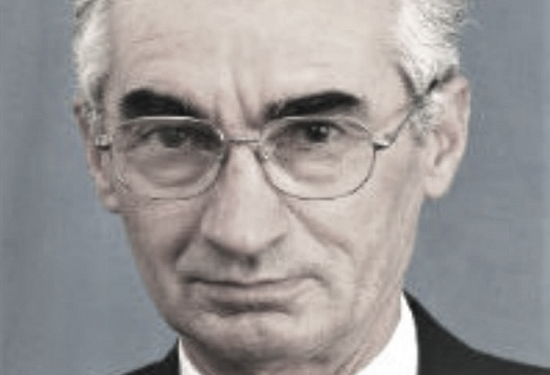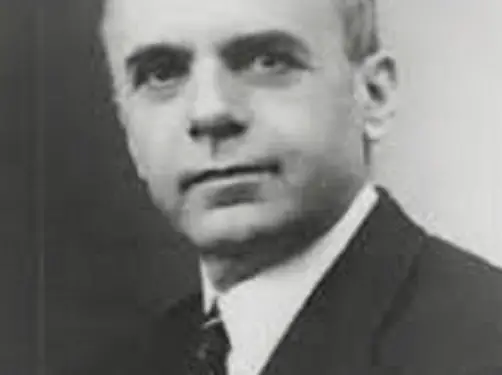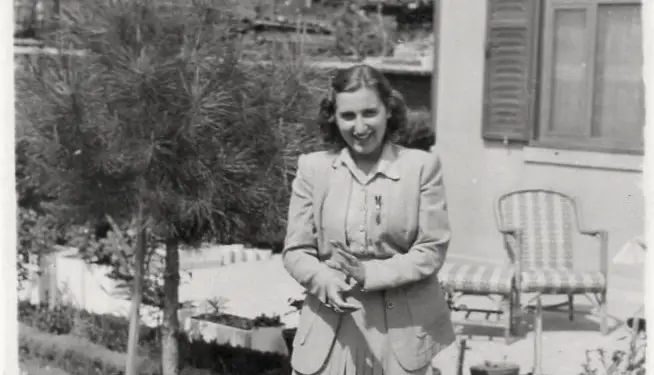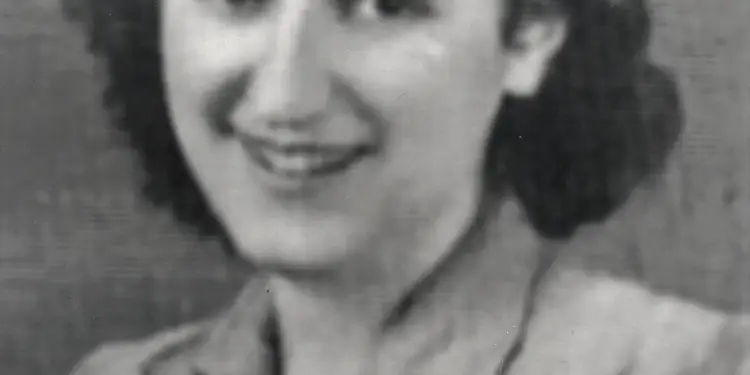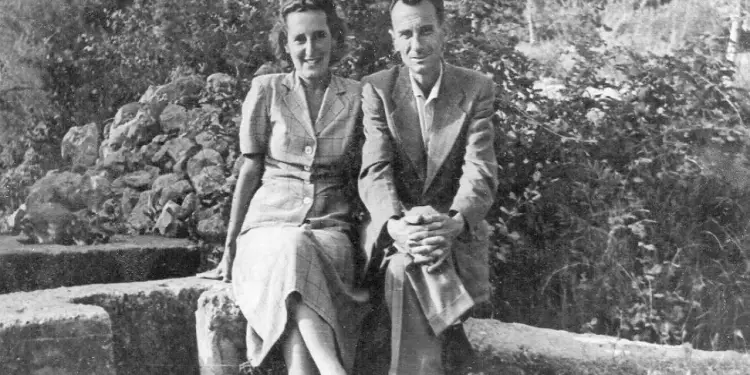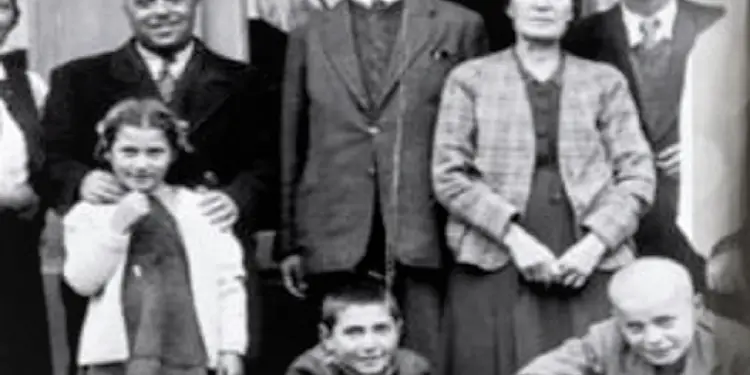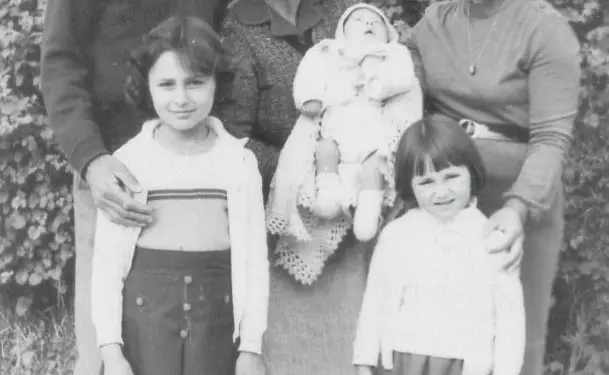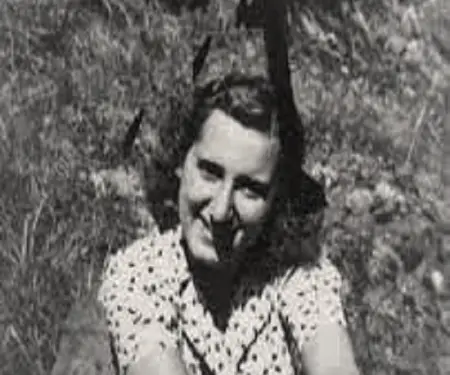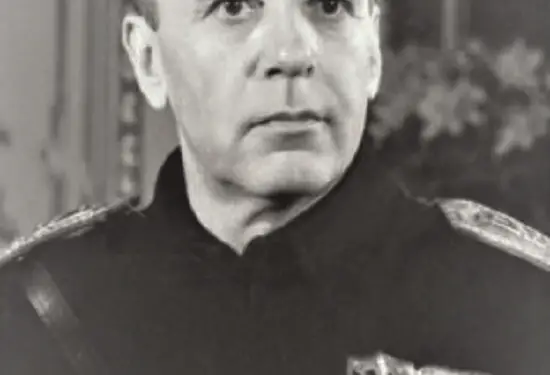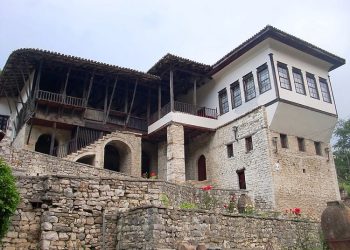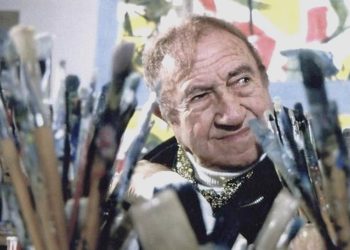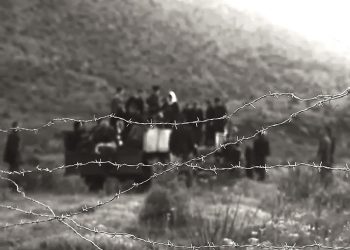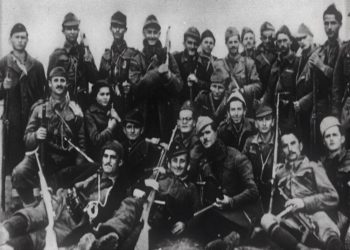By Eugene Merlika
Second part
– “It’s up to you to improve the world” –
Pope John Paul II
Memorie.al / strolling down a forest lane of a mountain resort village in the Italian Alps, one clear August morning, the thought struck me and took me back in time. Scenes of events, people and environments that had been folded like the yellowed pages of an old diary in my mind were renewed before my eyes. The past unfolded with familiar faces of friends from childhood, school, work, internment camps, prisons, random acquaintances on trips, on beaches, at death ceremonies, at weddings, in…! It seemed to me that I had them by my side, that I was talking to them, that we were walking together in this enchanting forest, that we were going to a cable car that would take us to the top of a mountain, where the horizon expanded and where the sight was dissolved in these beauties of nature…!
Continues from last issue
What the future holds for us, if there will be one after a lifetime of anxiety and suffering, is hard to predict. We were always at war, a long, hard struggle for survival. It was a war without weapons, but no less cruel. Its victims were our buried dreams, our unrealized desires, our crippled freedom, the years of our only life sacrificed to the unruly selfishness of armchair eaters. Our life was a tribute that had to be paid to the criminal utopias of the so-called theorists of communism, the ignorance, the lack of scruples and the ignorance of those who implemented those theories in Albania, the architects of the world divided into zones of influence, the inability of our parents to understand and avoid the danger of communist gangrene, our inability to successfully carry out the operation to eradicate it. Willingly or unwittingly we paid that tribute, we could not avoid it. That was our bitter, harsh, merciless fate. It’s like the legend of Sisyphus…!
In order to establish these major goals, which would change the course of history for a weak people, such as ours, a different mentality was needed, not the one with which we were, wittingly or unwittingly, molded. The political class had to have the courage and foresight to implement a series of radical reforms that would cut all the bridges with the abandoned system. The new time required a general roll-up of the sleeves, required work, new sacrifices. There was no magic wand that, once dropped, would bring prosperity.
Well-being, which was one of the centuries-old dreams of Albanians, should be achieved as a result of implementing other principles, other rules, and other laws. Prosperity would come slowly, step by step in the construction of another society, in which the all-powerful state that directed every movement of the individual, from the cradle to the grave, had to give up some of its functions and pass them on to its citizens. This did not mean that its role and importance decreased, but its scope changed. This State, which should no longer be identified with political parties, should be the guarantor of a very important objective: to provide all its citizens with equal opportunities to start the journey towards well-being, in a free country, but in which the laws that regulate life in the community should be and, above all, respected by everyone.
The state had to return to the citizens not only the liberties denied for fifty years, but also the assets unjustly nationalized by a regime of brigands. He had to find the most fruitful ways to exploit all the possible assets of the country, through a well thought out and equally well implemented strategy. He had to evaluate and share with honest and fair criteria the wealth inherited from his previous counterpart, wealth that was equal to the sweat and toil of half a century of unpaid work of Albanians from communist state capitalism. He had to reward especially those who had their help in this wealth, through long years of forced labor without reward, as a result of the violence of the proletarian State.
To return to this part of the population, not only with words, the trampled dignity, to recognize with sincerity the weight of its suffering, to return to it the hope and to provide it with the material opportunities to feel equal with others, were among the first tasks that were put before anyone who claimed to start walking towards a society, based on the high values of civilization.
These were the advantages that the democratic State should have on its way and along with them, its reformation, the creation of new institutions, the introduction of a different mindset into them. This new mentality, which would gradually conquer all environments, would be the basis for the creation of a civil society that, in turn, would express a political class, worthy of the name and capable of directing that society towards more and more desirable goals. But how did we accomplish these tasks, that time suddenly put us on the table? Were we able to respond to the great challenge of the end of the century?
Without denying a series of important achievements such as freedom, in the broadest sense of the word, private initiative, exile and others, it seems to me that we were not able to grasp the other goals, or even enter the right path that leads to their realization. The country’s political framework, a determining factor in possible developments, went from one end to the other. We once had a state party, and the half-century hunger for them led us today to an apocalyptic number, in a country with three million inhabitants and a majority voting system, a real paradox. It is not denied that in other countries, with a parliamentary system, there are many parties, but this is not a benefit for them and a reason to take an example from us. In the countries that weigh today in the developed world, we find a political bipolarism, which is represented by two powerful parties or, in some cases like Italy, in two party blocs. These two parties or two blocs express two different ways of conceiving society and its management has two different programs and every four or five years they appear before the voters to receive the government’s vote of confidence. Who wins governs who loses controls and prepares to govern.
In Albania, theoretically, the two opposing groups are present, but practically, the difference between them and the sharp political struggle is not based on the different conceptions of development models, but on the boundless greed to seize power. This goal is completely connected, not with the desire to realize for the good of the country those things that the opponent did not do, but with the creation of opportunities for personal, family, relative benefit and the circle of supporters and sympathizers. As a result of this mindset, the State, which should be the guarantor of opportunities for everyone, has turned into a tool of a group, which in any way takes its direction.
Clientelism has become the basic criterion of functioning and corruption, the fuel that sets it in motion.
The alternation of rulers serves to continue the “class war”, down to the lowest levels of the state administration, which is extremely harmful, because it does not allow the formation of that permanent structure of the State, which is its backbone and which, in theory, should be formed with meritocracy as the only criterion. The case of two young people, awarded in the Netherlands for administration, who do not find a job in the offices of the Albanian State after months of wandering, shows that we are very far from the path we should follow. He also shows that the “Alliance for the State”, which currently governs Albania, is not as it is named, but is a bond of mutual interests of its components and the smooth running of the State remains its last concern.
In ten years of the Democratic State, the red or blue governments and parliaments did not decide to return the properties to their legal owners, did not create in time the appropriate legal framework for the absorption of foreign capital, necessary for the exit from half a century of immobility, did not have the courage to give economic concessions to foreigners. They were not able to ensure the normal functioning of the State of Law, they did not create the models of independent institutions, they continued to govern from the secretariats of the parties, they passed the baton to one another for liberal laws, such as the extension of the terms of the tenants in private houses, they rewarded with worthless pieces of paper the lives taken or mutilated of the victims of communism, they contributed to the destruction of the state and the image of the country in 1997 , etc.
These two major political forces of Albania are led by representatives of our Generation, formed morally and intellectually in the schools of the most dogmatic regime of the communist East, protected with the statist and populist mentality, unable to conceive and elaborate a medium-term and long-term strategy to get the country out of the mud. Simple reason would advise the creation of a more truly mutual, liberal and libertarian political force like the Alliance of Democratic Youth, which today governs Hungary. The united Right, which should perform this function, is extremely fragmented and in its midst there are parties that do not recognize themselves in this strategy and for the ultra-nationalist and old concepts they carry.
The inability to use the lots of democracy, the misuse of the opportunities it creates to express political views and options, the inability to draw up the right convincing economic-political strategies and tactics, results and in accordance with the country’s particularities and the requirements of the time, clearly prove that the Albanian political class is not up to its duties. The consequences of this conclusion are reflected in the state of the country, which, despite any macroeconomic results such as currency, unfortunately presents a great deficiency in terms of comprehensive and balanced economic development, consolidation of the legal State, general image and credibility indicator, especially after the tragic events of 1997. Today, Albania, rightly or wrongly, enters the ranks of problematic countries for the continent; it is called a center of illegal traffic from the most diverse. With these credentials, she prejudges her relations with the world, especially with Europe.
We were not able to face the challenge that time presented to us ten years ago. We failed in our mission to build a contemporary and competitive Albania on the ruins of socialism. To the old problems, inherited from five centuries of Turkish rule and half a century of communist trials, we added others, or at least we were unable to prevent them. I remember one after a festive day, for an anniversary of the “Liberty” newspaper at the Palace of Congresses. The words of a veteran of political and anti-communist prisons remain in my mind: “Albania today needs two thousand idealists”. Maybe the figure was too big, maybe it didn’t even correspond to peoples much bigger and more developed than ours, but the statement was sacred.
We were not able to respond to this primary request of our country, at a very delicate moment for its future. It was the first years of democracy; we still had time to regain the right path, which, of course, those hundreds of idealists would have made it easier. They did not appear on stage; or rather they did not have the strength to conquer the stage. Time and others break even those few who tried to stay and fight with the only weapon of the ideal, honesty. No wonder, the history of the world is full of such examples…!
There are moments in the lives of people, but also of peoples and generations, in which self-confession, proof of self-awareness becomes mandatory. It seems to me that we have reached one. We must have the courage to weigh ourselves as a generation, regardless of everyone’s political beliefs, and honestly admit that we belong to a “Lost Generation”. I know that it is not easy, on the contrary, it is quite difficult, painful to understand that you have spent a whole life of war in defeat, that the greatest merit remains reproduction, the effort to raise and advance another generation, our sons. If this next generation will be able to do what we, for many reasons, did not do, if it will be able to put our country and his on the true path of progress, regaining a little of the “lost time”, we will still be paid, otherwise we will be squarely failed.
There is an ethical and moral law in the political life of any real democracy, which is also one of the indicators of the degree of its reliability. It is the withdrawal from the scene at the right moment, when the role is over or the battle is lost. With pain I have to affirm that our role is over, because we lost all the battles and as a result, now with awareness and some honesty, we have to leave others on the stage, our sons. We wish them with all our hearts a better fate than ours, and we leave them as a moral legacy an order: not to repeat our mistakes, not to adopt our vices and mentality, never to agree with tyranny, in any form, even if they have to pay very expensive prices for that disagreement…! It is not very easy, but it is not impossible.
Let’s trust the creative spirit and contemporary mindset of our sons with the destiny of the country. Even if they are young, even if you lack experience, even if they will make a mistake in something at the beginning, the future belongs to them, let’s leave the present in your hands. I am convinced that they will know how to build and breed them better than us. A step back of our Generation today, in the
Political and administrative life of the Country would honor us in the eyes of the future generations, who in the world of computers and globalization, will not even be able to conceive and no longer forgive our delays, incompetence and mistakes, which are already prejudicing their lives.
Let’s make our call of Pope John Paul II to young people, on World Youth Day, in Tor Vergata: “It’s up to you to improve the world.” There were also young Albanians, waving the flag with the two-headed vulture. If for their American, English, French, Italian, etc. peers. The words of the Holy Father were an impetus to correct and improve the different and special aspects of their societies, for our young people they are a powerful call to rebuild everything from the foundations. The burden will not be easy for them either, because the difficulties are very great, but with the mindset of a free person without prejudices, with the enthusiasm, momentum, initiatives and creative spirit of the age, with proper preparation in schools and other societies, observing, pondering and adapting the experiences of others, they will know how to cope with them and win over them.
Our task is not to hinder them in their work, and if we don’t like anything they do, it will seem excessive, strange, and unacceptable. We, mentally, belong to another world, with all its limitations, and we often fail to understand the changes that time and development dictate. If we had understood their burden today, it would be easier. I wish that as many young people as possible run in the next administrative elections. It will be an indicator of two very important wills: ours, to start withdrawing with the honor of arms and theirs, to take on the responsibilities and duties, as a result, and the efforts they require to cope with and put into practice. I also wish that the criteria for choosing and participating in the next competition are those of moral dimensions, but at the same time of personal skills and dedication to a job that, if done well, gives fruit and satisfaction not only to the authors.
These were some of the reasons that came to my mind in that long imagined conversation with the acquaintances and strangers of that group of people, which is my generation. Maybe there was something unusual in this conversation, maybe I blamed him for more flaws and mistakes than he had, maybe the judgment of history will not be so harsh, it will also recognize mitigating circumstances. He will recognize the fact that we had the worst fate of all the generations of this century of our country, to live under the hoof of the most unscrupulous, cruel, treacherous dictatorship that Albanians had ever known. We were the Generation of hardships and rationing, we did not enjoy childhood, youth, or manhood. Our childhood passed us by playing with rag balls and wishing for a piece of bread more than the daily ration of triska. The youth melted away in endless stocks, internment camps and forced labor, in the most absurd restrictions imaginable.
Manhood came to us at a time that changed everything, but that found us unprepared for these changes. We were forced to start life from scratch, because all the work did up to that time was multiplied by zero. Some of us dealt with politics and the results were listed above, others started the path of enrichment for a few and succeeded, the majority faced a life with the economic difficulties, often insurmountable, of this endless transitory phase and many took the paths of exile, to become servants, silently swallowing the bitter tears of an often injured dignity.
What the future holds for us, if there will be one after a lifetime of anxiety and suffering, is hard to predict. We were always at war, a long, hard struggle for survival. It was a war without weapons, but no less cruel. Its victims were our buried dreams, our unrealized desires, our crippled freedom, the years of our only life sacrificed to the unruly selfishness of armchair eaters.
Our life was a tribute that had to be paid to the criminal utopias of the so-called theorists of communism, the ignorance, the lack of scruples and the ignorance of those who implemented those theories in Albania, the architects of the world divided into zones of influence, the inability of our parents to understand and avoid the danger of communist gangrene, our inability to successfully carry out the operation to eradicate it. Willingly or unwittingly we paid that tribute, we could not avoid it. That was our bitter, harsh, merciless fate. It’s like the legend of Sisyphus…! Memorie.al
July 2000




